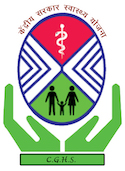5 Ayurvedic Tips to Ease the Pain of Fibromyalgia

Suffering from fibromyalgia? You’re not alone. According to the National Institutes of Health, an estimated 3 to 6 million Americans suffer from this chronic condition.
Fibromyalgia is a disorder characterized by widespread musculoskeletal pain, fatigue, and tenderness in areas of the body. People with fibromyalgia often have difficulty sleeping and may wake up feeling tired even after a full night’s sleep.
There is no cure for fibromyalgia with the conventional system of medicines, but Ayurvedic treatment can make you to goodbye all the symptoms of fibromyalgia and you can lead life normally. If you’re suffering from fibromyalgia, here are ten things you can do to ease your pain:
1. Get Enough Sleep
This is crucial for people with fibromyalgia because poor sleep can worsen pain and fatigue. Make sure to get at least seven to eight hours of sleep every night. Sleep is essential for healing and repair. Getting enough sleep can help to reduce pain, fatigue, and stress. Creating a bedtime routine that includes winding down for 30 minutes before sleep can help you to get the rest you need.
Sleep is crucial for our overall health and well-being, but it is especially important for people with fibromyalgia. Poor sleep can worsen symptoms and make it more difficult to manage the condition.
There are a few different ways that sleep can help people with fibromyalgia. For one, getting enough sleep helps reduce pain levels. It also gives the body time to heal and repair itself from the daily wear and tear of living with a chronic illness. Finally, good sleep habits can help improve mood and energy levels, both of which are often affected by fibromyalgia.
There are a few things you can do to help improve your sleep if you have fibromyalgia. First, establish a regular bedtime routine and stick to it as much as possible. This will help cue your body that it is time to wind down and prepare for sleep. avoid caffeine and alcohol in the evening, as they can disrupt sleep.
2. Exercise Regularly
Exercise can help reduce pain and improve sleep quality. Just make sure to start slowly and gradually increase the intensity of your workouts.
Exercise can help improve symptoms of pain, fatigue, and depression in people with fibromyalgia. It also can help them sleep better. People who exercise regularly tend to have less pain and fewer flares than sedentary people. Exercise also can increase muscle strength, which can help with some of the pain and fatigue associated with fibromyalgia.
3. Eat a Healthy Diet
Eating nutritious foods can help reduce inflammation and promote overall health. Be sure to include plenty of fruits, vegetables, and whole grains in your diet. Making some simple dietary changes can help to ease the symptoms of fibromyalgia. Avoiding processed foods and eating more fresh fruits and vegetables can help to reduce inflammation and pain.
The role of diet in fibromyalgia is not fully understood, but there are some foods that may trigger symptoms or make them worse. It’s important to experiment with your diet and see what works best for you. Some common triggers include:
- MSG
- Gluten
- Aspartame
- Dairy products
- Nightshade vegetables (potatoes, tomatoes, peppers)
There is no one-size-fits-all diet for fibromyalgia, but eliminating potential triggers is a good place to start. Eating a healthy, balanced diet with plenty of fruits, vegetables, and whole grains is also important. Getting enough sleep and exercise are also crucial for managing fibromyalgia symptoms.
4. Panchakarma
Panchakarma is a type of Ayurvedic cleansing therapy that can help to detoxify the body and reduce stress. This therapy can be beneficial in treating the symptoms of fibromyalgia.
Panchakarma is an important part of the Ayurvedic treatment for fibromyalgia. It is a detoxification process that helps to cleanse the body and remove toxins. Panchakarma has five main steps: abhyanga (massage), swedana (steam therapy), Shirodhara (oil therapy), Nasya (nasal administration of medicine), and Vamana (induced vomiting). Each step has its own specific benefits, but together they help to improve overall health and well-being. Fibromyalgia is a condition characterized by widespread pain, fatigue, and tenderness in the muscles, joints, and connective tissues. Ayurveda, which is one of the oldest systems of medicine in the world, offers a unique approach to the treatment of this condition. Ayurveda views fibromyalgia as a disorder of the doshas, which are the three fundamental energies that govern our physical and mental health. imbalances in the doshas can lead to various health problems, including fibromyalgia.
5. Yoga and Meditation:
Yoga and meditation are both excellent ways to reduce stress and promote relaxation. Both of these activities can help to ease the symptoms of fibromyalgia.
Following these Ayurvedic tips can help to ease the symptoms of fibromyalgia and improve your quality of life.
There is no one answer to this question as everyone experiences fibromyalgia differently and will respond to different treatments in different ways. However, many people with fibromyalgia find that practicing yoga and meditation can help to ease their symptoms and improve their quality of life.
Yoga can help to reduce pain by stretching and toning muscles, and increasing flexibility. It can also help to improve sleep quality and reduce fatigue. Meditation can help to ease anxiety and stress, which can trigger or worsen fibromyalgia symptoms.
If you’re living with fibromyalgia, it’s important to find ways to manage your symptoms. These tips can help you feel better and improve your quality of life.














